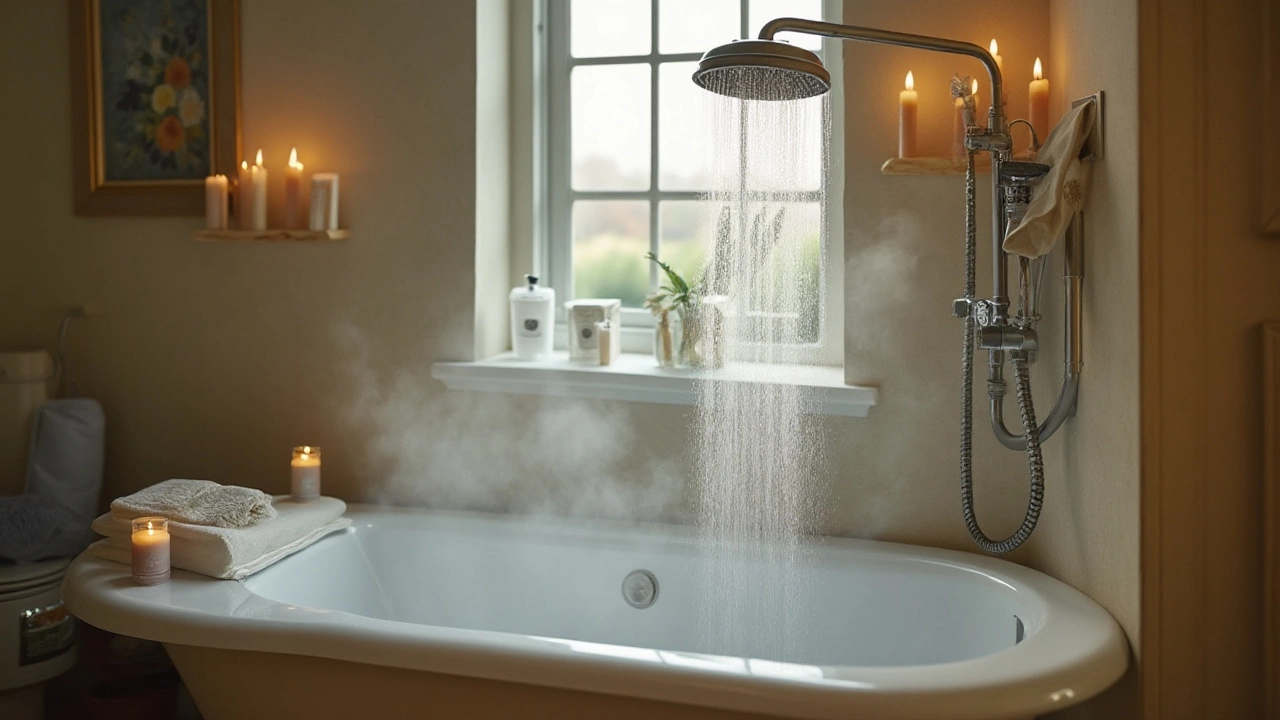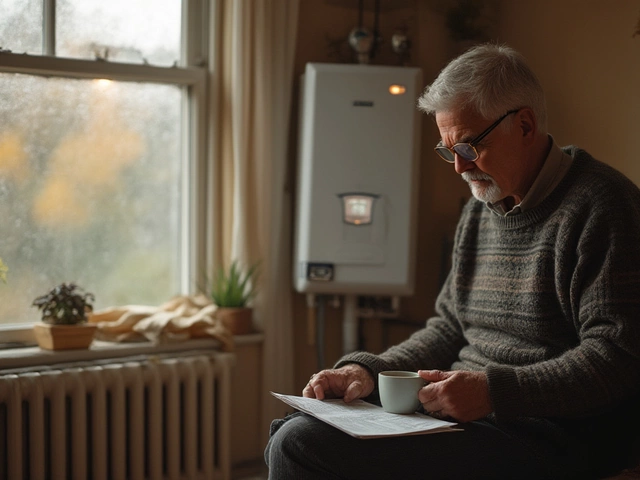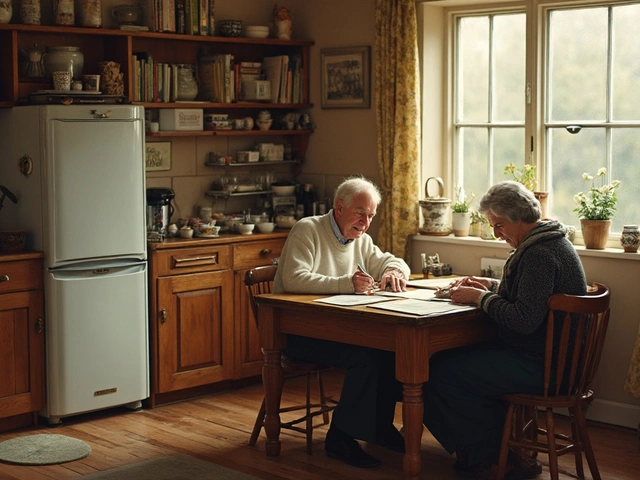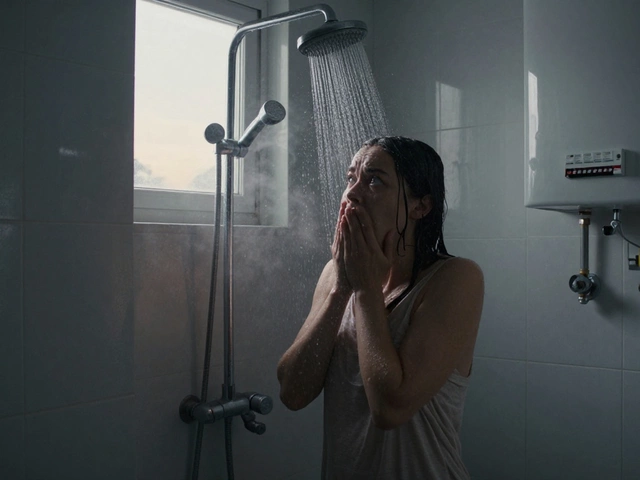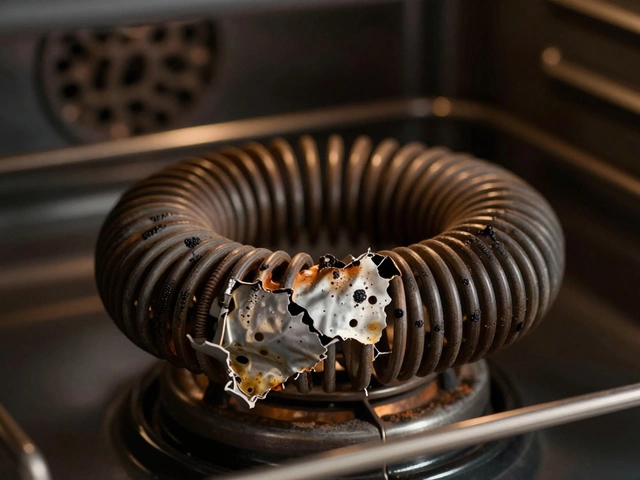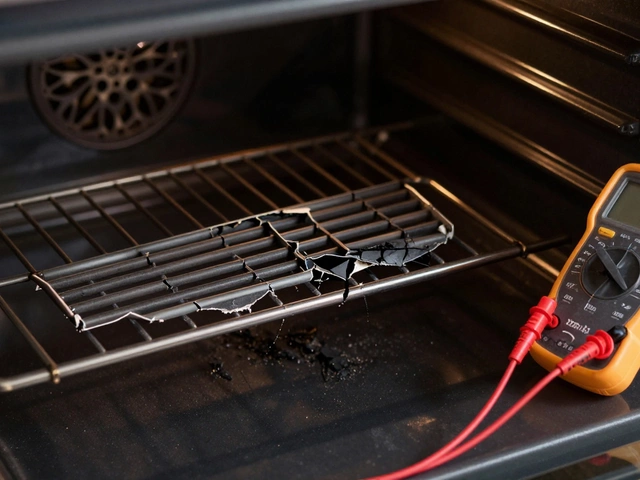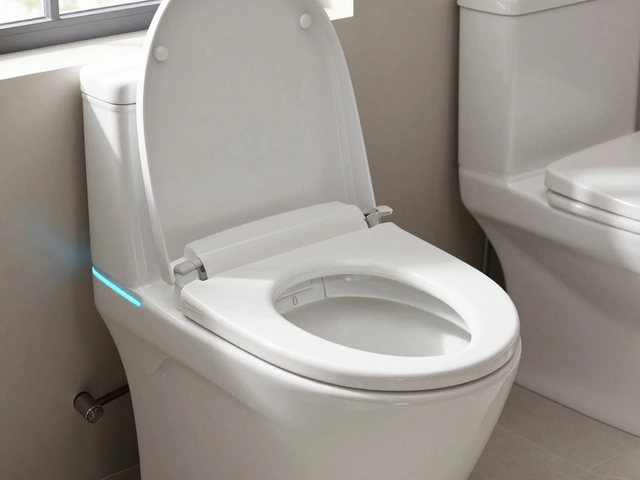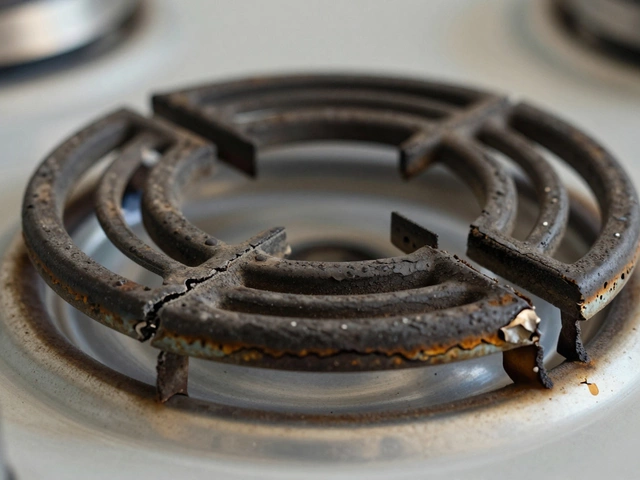There comes a time in every household when the boiler decides to throw in the towel. You might find yourself pondering the age-old dilemma: Can you shower with a broken boiler? Worry not, as this article delves into that very question, providing insights to keep life as comfortable as possible. Let's face it; few things start or end the day quite like a warm shower.
Understanding how your household's boiler works is key, especially when it suddenly stops doing its job. It's much more than just a large metallic contraption tucked away in a corner; it's the backbone of your home's hot water system. When it falters, knowing what steps you can take is invaluable.
- Understanding the Role of a Boiler
- Identifying Boiler Breakdowns
- Temporary Solutions for Hot Showers
- Tips to Stay Warm Without a Boiler
- Steps to Repair and Maintain Your Boiler
Understanding the Role of a Boiler
In the cozy confines of our homes, the boiler often plays the unsung hero, warming our spaces during the chilly months and ensuring that we always have access to hot water for our daily rituals. This invaluable appliance becomes a cornerstone of household comfort, quietly humming away in basements or tucked away in utility rooms, and it's only when the system hiccups that we truly appreciate its significance. Designed as a complex integration of pipes, heat exchangers, and control systems, the boiler functions by heating water or converting it into steam for heating purposes. Yet, few understand what goes on inside the sturdy casing of their trusty boilers, or realize that these systems can vary in types, such as combination, system, and conventional models, each tailored to meet specific needs.
One must not overlook the fact that energy efficiency in modern-day boilers has significantly improved, with most households opting for gas-powered versions due to their cost-effectiveness and reliability. It's interesting to note that according to a 2023 study by the Energy Savings Trust, switching to an energy-efficient boiler can reduce energy bills by up to 30%, which makes it not only a matter of convenience but also one of economic prudence. Boilers operate on a simple principle; when the unit's thermostat detects a drop in temperature, a signal is sent to ignite the gas burner, heating the water that is then circulated to radiators or directly supplied to taps and showers. Maintaining the right pressure is crucial, as it ensures that hot water flows seamlessly, indicating that all the intricate components are working harmoniously.
"A well-maintained boiler is akin to a well-guarded secret in household management," says HVAC expert John Harrison in his column for Homestead Heating. "When you understand how essential it is, you become more vigilant about everyday habits that could extend its lifespan."
With the advent of technology, smart thermostats now allow homeowners to have unprecedented control over their boiler systems, adjusting heating schedules and temperatures remotely through smartphone applications. However, the role of a boiler extends beyond mere hardware; it embodies the ideology of dependable comfort. The resilience and durability of boilers enable them to endure harsh conditions, but regular maintenance remains imperative. Routine check-ups and understanding warning signals can prevent possible breaks in service, securing the steady flow of heat. Those squeaks and groans from your boiler might be more than just idle chatter—attending to these signals promptly can avert costly repairs down the line.
In this light, a broken boiler may seem daunting at first, but equipping oneself with basic knowledge transforms it into any ordinary household challenge. Whether through understanding how the system operates or keeping abreast of its maintenance, this understanding empowers homeowners to play an active role in safeguarding the warm solace of their homes. This, in combination with modern efficiency trends, makes boilers not just a necessity but a cornerstone of today's energy-conscious homes.
Identifying Boiler Breakdowns
When the pressure of modern life collides with a stubbornly broken boiler, it’s time to become something of a detective. The whole escapade can be intimidating, but with a touch of knowledge, you can find out what's gone awry. Every boiler has its quirks and, more often than not, mechanical failures give off tell-tale signs. These signals are your best allies in diagnosing the trouble at hand. You might notice unusual noises, such as banging, gurgling, or whistling, coming from the unit. Such sounds can indicate anything from trapped air to more serious mechanical defects. Recognizing these early warnings can save you a lot of hassle and an unexpected dip into ice-cold water in the morning.
Another red flag is the temperament of your hot water. Should you find the temperature fluctuating wildly or the hot water supply dwindling much quicker than usual, your boiler may be signaling for help. Besides the hot and cold conundrum, look out for low pressure. Boilers generally maintain a specific pressure to function efficiently, and a drop below this level can spell trouble. If your shower is giving you barely a trickle, it’s high time to take a closer look at that pressure gauge. It's a simple check that can point you in the right direction, potentially avoiding an unnecessary call to a technician.
Nobody enjoys dealing with leaks, yet this is another common issue with malfunctioning boilers. Leaks need swift attention, or you'll face not only a lack of hot water but also potential water damage to your lovely home. A leaky boiler can be the result of a multitude of factors—from a faulty pressure valve to corrosion within the system. It's integral to address leaks promptly to prevent water wastage and more significant underlying damage. Moreover, if your boiler keeps switching itself off for no apparent reason, this could be a warning of a faulty thermostat or air trapped within the system. Both of these issues can disrupt the delicate balance required to keep the boiler running smoothly.
"Regular inspections and maintenance checks are crucial for the health of your boiler," advises a seasoned expert from Home Repair Monthly. "Ignoring early signs of breakdown can lead to unintended expenses in the long run."
Navigating these symptoms and keeping them in check is akin to being the captain of your ship, ensuring smooth sailing into warmer waters. Let’s not forget the importance of routine maintenance, which can stave off many of these issues, providing your boiler with a longer, happier life. By maintaining vigilance and acting quickly at the first signs of trouble, you can ensure your shower remains a sanctuary rather than a surprise cold blast.

Temporary Solutions for Hot Showers
Facing the reality of a broken boiler can feel like a full-blown household crisis, especially when you have to consider alternative ways to enjoy a hot shower. But don't fret, there are several temporary options to keep you and your family comfortable while you hotfoot it to find a more permanent solution. First, let’s talk about portable water heaters. These nifty devices can be a godsend during any hot water conundrum. They run on electricity and can heat just enough water for a quick shower. All you need to do is fill the portable heater, plug it in, and within minutes you have warm water ready to go. It’s important to note, though, that these heaters aren't meant for long-term use but can certainly save the day in a pinch.
Alternatively, combining the powers of kettles and buckets can help recreate a warm shower experience. It's as simple as it sounds: boil water using your kettle, and then mix it with colder water in a large bucket or even the bathtub itself. Use a smaller container to pour water over yourself, allowing you to stay as warm as possible. It's an age-old method that has been keeping people clean for centuries – before boilers were even a glint in the eye of an engineer. Although it requires a bit more effort, it’s an undeniably useful workaround. A functional and creative mindset can transform these makeshift solutions into a surprisingly effective hot water fix.
Now let's delve into the realm of camp showers—a fabulous option if you're someone who frequents the great outdoors or has a penchant for adventurous gear. A camp shower, often solar-powered or pumped, can store and heat enough water for a shower when the sun is shining bright. Fill it up, let it soak up some sun for a couple of hours, and you’ll have yourself a warm rinse by afternoon. According to research by The Camping Journal, 70% of campers consider portable showers indispensable on extended trips, which demonstrates their credibility and versatility.
"Adapting to circumstances without losing comfort is essential. A temporary fix can still bring warmth when the boiler fails." — Harold Minton, Home Improvement Expert
If budget isn't an issue, consider renting a mobile shower trailer. Yes, you heard that right! These professionally managed units come fully equipped with hot water and can be delivered straight to your home, providing a temporary respite from your can't-shower-without-it dilemma. It might be an unconventional method, but for families or larger households, it can be a practical albeit short-term solution. Things like mobile showers and portable water heaters can change day-to-day inconveniences into minor hiccups, allowing you to keep your cool while attending to repairs.
Critical to navigating these unexpected periods without a functioning boiler is the knowledge that adaptable and inventive solutions abound. From a borrowed kettle to portable equipment, various options ensure you won't have to skip a hot shower and compromise on comfort. A
| Solution | Duration |
|---|---|
| Portable Water Heater | Short-term |
| Kettle and Bucket Method | Temporary |
| Camp Shower | Medium-term |
| Mobile Shower Trailer | Temporary |
Tips to Stay Warm Without a Boiler
When the boiler decides to take a vacation right in the middle of winter, it's essential to keep your home, and yourself, as warm as possible. In the absence of a functioning boiler, exploring alternative heat sources becomes crucial. One of the most straightforward solutions is to layer up. Wearing multiple layers of clothing not only traps the heat close to your body but allows you to adjust your comfort level as needed. You can play with different materials; start with base layers made of fabric such as merino wool, known for its excellent heat retention. Top it off with a snug sweater or a hoodie, and you'll find yourself surprisingly comfortable, even without that steady boiler heat.
Harnessing the power of electric heaters is another viable approach in the interim of a boiler repair. One common misunderstanding is that all heaters are created equally, but that's far from reality. Infrared heaters are an efficient choice as they directly heat the objects and individuals in their path, rather than the air, saving energy while providing immediate warmth. Keep these heaters at a safe distance and ensure they're on a stable surface. But remember, never leave them unattended, as safety should always take precedence over short-lived cozy comfort.
Sealing your home against drafts can also make a substantial difference in maintaining warmth. Look around for sneaky heat escape routes like under doors and draughty windows. Using draft stoppers, heavy curtains, and window films can help save a lot of heat from sneaking out. It's fascinating how these relatively small changes can keep the space much warmer. Additionally, consider cooking a hearty meal; not only will the activity warm you up, the lingering warmth from the oven works twofold. Cooking gives you warmth and fills your home with comforting aromas, making the chilly weather outside feel distant.
"Winter would be much colder if we couldn't improvise with what we have," says energy expert Maria Harris. "Smart adjustments in our daily routine can make an astonishing difference in elevating the indoor temperature."
If you're finding it quite the challenge to gather the energy without a shower, exploring alternative ways to freshen up is practical. A bucket wash with lukewarm water heated on the stove can do the trick. Make a delightfully steaming soup or tea to warm up from the inside. Gathering around these small, practical solutions can remind us of what we often overlook: it's not always the biggest outfits or the most modern technology that comes to the rescue, but a return to simple, resourceful methods.

Steps to Repair and Maintain Your Boiler
Repairing and maintaining your boiler might seem daunting at times, especially when the need arises unexpectedly. However, with the right approach, you'll be able to tackle the issue efficiently and ensure that your home's hot water supply remains uninterrupted. Boilers are complex systems that require a good balance of DIY maintenance and professional intervention when needed. Recognizing the issue early on can save you from cold showers and hefty repair bills.
Before diving into repairs, safety has to be your priority. Make sure to turn off the power supply and the gas valve to the boiler. A regular survey with your senses can act as an early warning system. Listen for unusual noises; gurgling or banging could signal air in the system. Look for visible leaks or rusting, and note any unusual smells, which might suggest a gas leak. Each of these symptoms indicates a common problem worth addressing.
For the maintenance aspect, start by regularly checking the pressure gauge. Most systems operate efficiently between 1 and 1.5 bar. If yours doesn't meet these levels, consult the manufacturer's manual or consider professional advice. Regularly bleeding your radiators can also rid the system of trapped air. This seemingly menial task can improve your boiler's efficiency and performance significantly.
Annual servicing by a certified technician extends a boiler's life and ensures optimal operation, keeping emergency repairs to a minimum. A technician will inspect safety devices, clean combustion spaces, and check seals, providing peace of mind. It's a small investment compared to the cost and inconvenience of major repairs or replacements.
"An ounce of prevention is worth a pound of cure." This often-cited phrase by Benjamin Franklin holds particularly true for boiler maintenance. Consistent care prevents costly emergencies and keeps your home warm.
Your boiler's thermostat settings might occasionally need recalibrating, especially after a system restart. Set it between 60 to 75 degrees Celsius for comfortable yet efficient heating. Highlighting its importance, remember that an efficient boiler can lower your energy bills and reduce your carbon footprint, making it environmentally friendly.
When replacing parts like pressure release valves or thermostats, quality should outweigh cost considerations. Investing in newer, high-quality parts can increase the efficiency and durability of your system. In conclusion, a proactive approach to boiler repair ensures longevity, safety, and comfort within your home.

